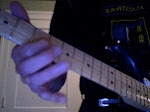"Have drastically reduced my work load and stress levels this year since my house burned down."
I can relate to that in a way, without having had the fire. I am doing well, thank you! I'm only 80% retired at present (I still come in 2 days every other week) but it's good to operate at such a reduced level, after so many high intensity years, and have a lot of time for myself and other pursuits. The clock is ticking and we don't have forever to do what's personally meaningful. I'm not taking any more forensic cases and am leaning towards retiring from seeing patients in May. My license is renewed until July 2019, so I could still do some professional work if I choose to after that. It's difficult to let go of my practice entirely but it has to happen one of these days. I think I will be glad when I do it.
It's surprising there are so few books about PTSD happening to doctors. No one is immune. PTSD with therapists who deal with trauma is talked about in professional PTSD circles. I've been fortunate not to develop it with all the terrible things I've looked at and listened to. I believe I was protected from it because I have the will and desire to look at the world honestly without fearing my own thoughts and feelings and because I didn't take it on myself to be responsible for what happened or for somehow making it "ok." Humility is the beginning of wisdom, I like to say. Humans also do a lot of good and cool things and we can only screw the universe up so much.
What did happen to me was "compassion fatigue" where I couldn't feel for people as I'm used to. That's what told me I had to cut back, which resulted in me regaining that capacity again. I view the path to inner peace and reconciliation with self and world as a life task. I don't look for some final stage where one becomes the Buddha, I'm ok with staying on the path and seeing what happens. Of course, if I do wake up to enlightenment one day, I'm sure it will be interesting.
So keep working on it. I didn't get an attachment with your message. Could you send me the link again? It's good hearing from you and you're welcome to remain in touch if and when I do retire fully.
Yours truly,
Owen
